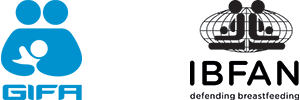
In August 2016, the Special Rapporteur on the right fo food, Ms Hilal Elver, presented her annual report to the General Assembly. The International Baby Food Action Network welcomes this comprehensive report which addresses the major underlying factors affecting nutrition, including economic and social determinants, the impact of food systems, unhealthy eating habits and non-communicable diseases, trade liberalization and foreign direct investment, the aggressive marketing of unhealthy food products and the product-based approach to malnutrition.
The report highlights the need to establish suitable safeguards to prevent negative corporate influences on nutrition governance and the need to regluate and hold the food industry accountable, while unsustainable industrial food systems are to be shifted to « nutrition senstitive » ones (§4). It emphasizes the growing influence of the private sector over nutrition governance through public-private partnerships, at the risk of blurring the line between public interests and financial gain (§52). With regard to the so-called « movement » Scaling Up Nutrition, which does not have any accountability to the United Nations or other intergovenrmental body, the report points out the lack of careful management of corporate involvement, and calls for the identification of conflicts of interests (§54). Similarly, the influence of philantropies is questioned. In particular, with regard to the activities of GAIN (the Global Alliance for Improved Nutrition), the reports urges States to implement an effective, independent evaluation mechanism to balance private sector involvement in nutrition policies (§56).
In the context of corporate responsibility,the report stresses the extraterritorial obligations of States to seek to prevent and address human rights abuses abroad by companies domicilied within their jurisdictions (§70). Concerns are also expressed on voluntary corporate commitments on labelling and avertising, or sponsorship of nutrition and health education programme, which carry the risk to blur the lines between education and marketing, while potentially allowing companies to disseminate misleading information (§72).
More specifically, a whole section of the report is devoted to the importance of breastfeeding, highlighting that it provides optimal nutrition for infants and that it protects babies’ health, while the WHO recommendations on the topic are recalled (§16-17). The duty of private companies to comply with the Code according to the General Comment No 15 of the Committee on the Rights of the Child is outlined (§69).
Highlighting the limited number of countries which have fully implemented the Code and emphasizing the growing global sales of breastmilk substitutes (§81), the report recommends all States to incorporate the Code in its entirety into their legal systems and ensure adequate monitoring to ensure implementation (§99l). With regard to women’s empowerment , the report insists on providing paid maternity leave, social recognition of unpaid work and prevention or early and forced marriages (§99k), echoing the importance of breaking the cycle of malnutrition within a life-course approach (§11-12).
The report also calls upon the Human Rights Council to endorse the WHO Guidance on ending the inappropriate promotion of food for infants and young children (§99m) and welcomes the negotiations to establish a legally binding instrument to regulate the activities of transnational corporations in order to curb the unrregulated actions of private actors flooding global market with junk food (§99c).
- Read the 2016 annual report of the Special Rapporteur on the right to food (A/71/282)
- Read IBFAN’s informal submission to the Special Rapporteur on the right to food
